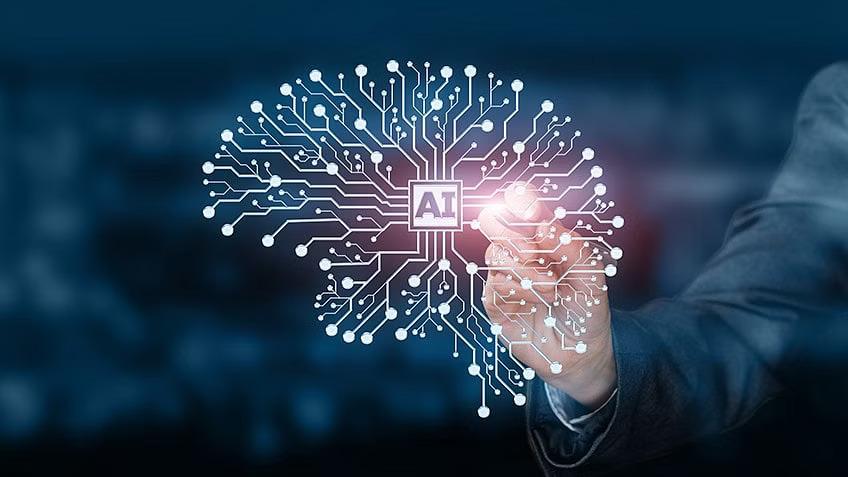Inquire
The Rise of Artificial Intelligence

Artificial Intelligence (AI) has been a buzzword in technology circles for decades, but its impact on our lives has become increasingly profound in recent years. From powering virtual assistants like Siri and Alexa to driving self-driving cars, AI is changing the way we live, work, and interact with the world around us. In this blog, we will explore the fascinating world of artificial intelligence, its evolution, applications, and the ethical considerations that come with it.
The Evolution of Artificial Intelligence
Artificial Intelligence has come a long way since its inception. The term "AI" was first coined in 1956, and early AI research focused on rule-based systems and symbolic reasoning. However, progress was slow, and AI winters followed periods of hype when the technology failed to deliver on its promises.
In recent years, AI has experienced a renaissance, thanks to advances in machine learning and deep learning. These breakthroughs allowed AI systems to learn from vast amounts of data, making it possible to develop applications that were once thought to be science fiction. Today, AI is no longer confined to research labs; it's a part of our daily lives.
Applications of Artificial Intelligence
1. Healthcare: AI is transforming the healthcare industry by helping diagnose diseases, analyze medical images, and even develop personalized treatment plans. Machine learning models can sift through massive datasets to identify patterns and make predictions that aid in early disease detection and treatment.
2. Finance: In the financial sector, AI is used for fraud detection, algorithmic trading, and risk assessment. AI-powered chatbots provide customer support, and robo-advisors offer automated investment advice.
3. Autonomous Vehicles: Self-driving cars rely on AI to perceive their surroundings and make real-time decisions, improving safety and efficiency on the road.
4. Natural Language Processing (NLP): NLP algorithms are behind virtual assistants like Siri and chatbots, enabling human-like interactions with machines. Translation services like Google Translate also benefit from NLP.
5. E-commerce and Recommendation Systems: AI-driven recommendation systems analyze user behavior and preferences to suggest products, movies, or content, enhancing user experiences and increasing sales.
6. Manufacturing and Industry 4.0: AI-driven robotics and automation are improving efficiency and quality control in manufacturing processes. Predictive maintenance algorithms can reduce downtime and save costs.
7. Environmental Impact: AI is used to monitor and optimize energy consumption, predict weather patterns, and support sustainability efforts.
Ethical Considerations
While AI holds immense promise, it also raises important ethical questions:
1. Bias and Fairness: AI systems can inherit biases from the data they are trained on, leading to discriminatory outcomes. Ensuring fairness and equity in AI is a critical challenge.
2. Privacy: AI systems can collect and analyze vast amounts of personal data. Striking the right balance between data-driven insights and privacy protection is crucial.
3. Job Displacement: Automation powered by AI may lead to job displacement in some industries. Preparing the workforce for the future of work is essential.
4. Accountability: As AI systems make decisions that affect our lives, establishing accountability and transparency is paramount.
Artificial Intelligence is a transformative force that is reshaping industries and the way we live. Its potential is vast, from improving healthcare and transportation to enhancing our daily interactions with technology. However, as AI becomes more pervasive, it is essential to address ethical concerns and ensure that it benefits society as a whole.
The future of AI is exciting and full of possibilities, but it also comes with responsibilities. As we continue to develop and integrate AI into our lives, we must navigate the complex terrain of ethics, privacy, and accountability to harness its full potential while safeguarding our values and principles. In doing so, we can ensure that artificial intelligence truly transforms the world for the better.

- Managerial Effectiveness!
- Future and Predictions
- Motivatinal / Inspiring
- Other
- Entrepreneurship
- Mentoring & Guidance
- Marketing
- Networking
- HR & Recruiting
- Literature
- Shopping
- Career Management & Advancement


 SkillClick
SkillClick